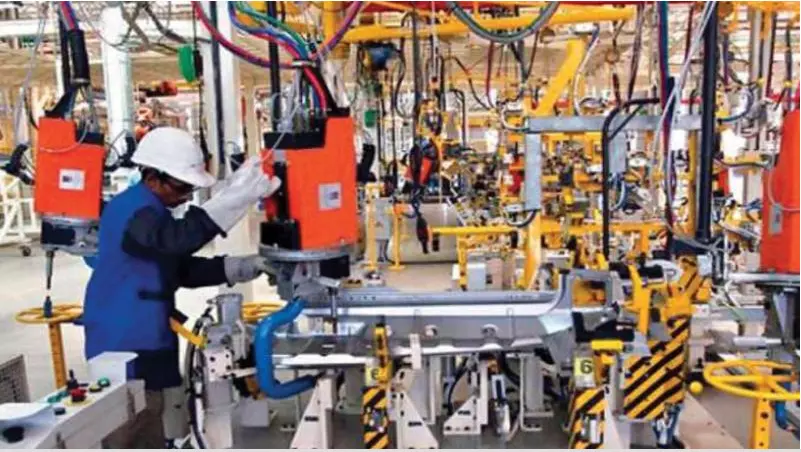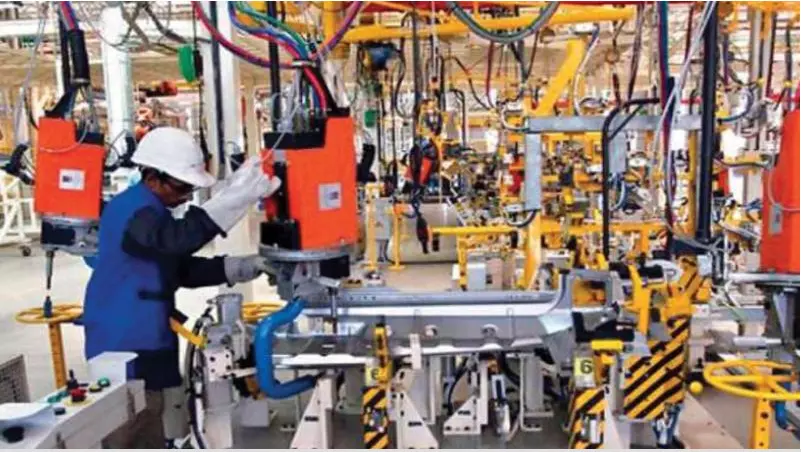
In recent years, India has witnessed a notable trend: manufacturers across various industries are increasingly shifting their focus towards the services sector. This transition marks a significant evolution in the country’s economic landscape, influenced by multiple factors ranging from technological advancements to changing global market dynamics.
Understanding the Trend
Historically, India has been recognized as a hub for manufacturing, particularly in sectors such as textiles, automobiles, and electronics. However, the past decade has seen a gradual decline in the dominance of manufacturing as a primary economic driver. Instead, the services sector, encompassing IT services, healthcare, finance, and hospitality, among others, has emerged as a powerhouse of growth and employment.
Key Drivers of Transition
Several factors contribute to this shift:
1. Technological Advancements: Rapid advancements in automation, artificial intelligence, and digital technologies have transformed global production paradigms. Many Indian manufacturers are adopting automation to enhance efficiency and reduce labor costs. This shift not only alters the manufacturing landscape but also nudges companies towards service-oriented roles in managing and maintaining these technologies.
2. Global Market Realities: Globalization has interconnected economies more than ever before. Indian manufacturers face intense competition from countries with lower labor costs and streamlined regulatory environments. To remain competitive, many are diversifying into service-based offerings that are less vulnerable to geographical constraints and tariff wars.
3. Changing Consumer Preferences: Consumer preferences are evolving towards experiences and personalized services rather than just products. This trend favors service-oriented businesses that can cater to individualized demands, provide superior customer support, and offer ongoing value beyond the initial sale.
Examples of Transition
1. Automobile Industry:
Traditionally a stronghold of manufacturing in India, automakers are increasingly investing in technology-driven services. Companies are focusing on electric vehicle (EV) infrastructure, connected car services, and mobility solutions rather than just assembling vehicles. This transformation aligns with global trends towards sustainable transportation and smart mobility.
2. Textile Sector:
Textile manufacturers are leveraging digital platforms to offer custom clothing and fast fashion through e-commerce channels. This shift not only enhances market reach but also provides direct consumer interaction, thereby bridging the gap between manufacturing and service delivery.
3. IT and Software Services:
India’s prowess in IT services is well-established, with firms providing software development, cybersecurity, cloud computing, and IT consulting globally. The IT sector continues to expand as digital transformation becomes imperative across industries worldwide, presenting significant opportunities for service-oriented growth.
Implications for the Economy
The transition from manufacturing to services carries several implications for India’s economy:
– Job Creation: While manufacturing traditionally provided large-scale employment, the services sector creates diverse opportunities across skill levels, from IT professionals to healthcare providers and hospitality staff.
– Growth Potential: Services tend to have higher value addition and scalability potential compared to manufacturing, contributing to GDP growth and economic resilience.
– Challenges: However, challenges such as skill mismatches, regulatory complexities, and the need for continuous innovation and adaptation remain critical as industries navigate this transition.
Policy and Strategic Considerations
To facilitate this transition effectively, policymakers must focus on:
– Skill Development: Investing in education and vocational training programs to equip the workforce with skills aligned with service-sector demands.
– Infrastructure: Enhancing digital and physical infrastructure to support the growth of service-oriented businesses and ensure seamless connectivity across regions.
– Regulatory Environment: Streamlining regulations to foster innovation, entrepreneurship, and ease of doing business in service sectors.
Conclusion
The shift from manufacturing to services in India reflects broader global economic trends and strategic responses to technological advancements and changing consumer behaviors. While manufacturing remains integral to India’s economic fabric, the burgeoning services sector presents new avenues for growth, innovation, and job creation. Embracing this transition thoughtfully and proactively will be crucial for India to sustain its economic momentum and competitiveness in the 21st-century global economy.
In essence, as manufacturers in India “call it quits” on traditional paradigms, they are not retreating but rather repositioning themselves to thrive in an increasingly service-driven world economy.
